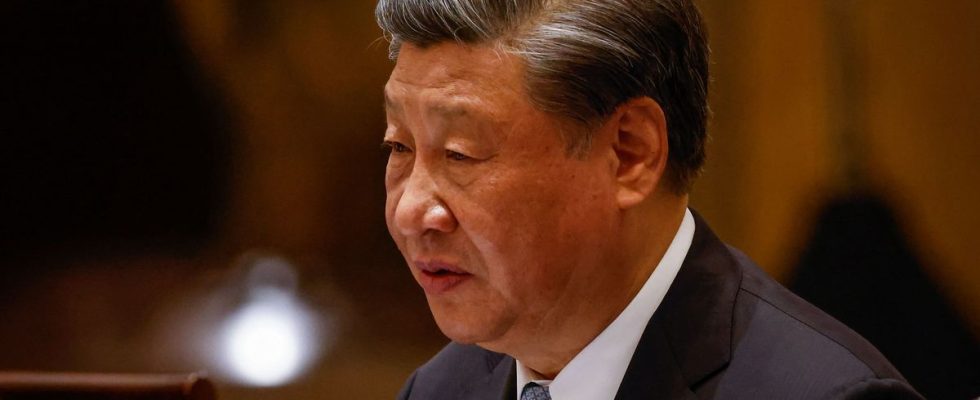Chinese President Xi Jinping on Thursday hailed the entry into a “new era” of relations between his country and Central Asia, at the opening in China of an unprecedented summit with these five former Soviet republics.
Intended to strengthen economic and cultural ties with these nations traditionally closer to Moscow than to Beijing, this major meeting is organized at a time when Joe Biden is meeting the leaders of the G7 in Japan.
This is the very first edition of this “China-Central Asia summit” since the establishment of diplomatic relations in 1992 between the Asian giant and these republics (Kazakhstan, Kyrgyzstan, Tajikistan, Turkmenistan and Uzbekistan) after the fall of the USSR .
Board the Chinese “express train”
Symbolic choice: this meeting described as “extremely important” by Beijing is held in the historic city of Xi’an (north), eastern end of the ancient Silk Road which linked Europe and China via Asia central.
Xi Jinping greeted the five presidents in the evening in front of a grand old-style Chinese building lit by red lanterns. Dozens of dancers then performed a colorful musical show inspired by the Tang dynasty (618-907), another symbol because China-Central Asia ties were particularly strong at that time.
“I am convinced that our joint commitment will make tomorrow’s summit a great success and usher in a new era” for these relations, Xi Jinping told his five counterparts during a welcome dinner.
“China sincerely invites” these countries to “board the express train of its development to build a better future together,” he said, according to the Chinese Foreign Ministry.
Facing the G7
Formerly members of the Russian Empire and then of the Soviet Union, these nations maintain privileged economic, linguistic and diplomatic ties with Moscow. But with the war in Ukraine, Russian influence waned. A relative void that the Chinese president is willing to fill.
“Xi Jinping will present himself as a leader capable of promoting development and peace in the world,” Zhiqun Zhu, professor of international relations at Bucknell University, told AFP.
Chance (or not) of the calendar: a summit of the leaders of the G7 (Canada, France, United States, Germany, Italy, Japan, United Kingdom) opens Friday in Hiroshima, in the presence in particular of the American president Joe Biden – whose the country regularly portrays Beijing as a threat.
The Japanese event will be devoted in particular to the establishment of a common strategy in the face of China’s growing influence in the world. Opposite, “the diplomatic and strategic importance” of the unprecedented meeting organized in Xi’an on Thursday and Friday “should not be underestimated”, underlines Zhiqun Zhu. “The China-Central Asia Summit shows that China’s rejuvenation cannot be hindered and has strong support in Central Asia and other developing countries. »
China estimates that its trade with Kazakhstan, Kyrgyzstan, Tajikistan, Turkmenistan and Uzbekistan reached 70 billion dollars (64 billion euros) last year and climbed over one year by 22% in the first quarter of 2023.
“Common Future”
Central Asia features prominently in China’s “Belt and Road” initiative, also known as the Belt and Road. Embodied by Xi Jinping who launched it at the end of 2013, this pharaonic program intends in particular to develop, thanks to Chinese funds, roads, ports, railways and infrastructures abroad.
The Asian giant has already invested billions of euros to exploit natural gas reserves in Central Asia and build rail links connecting China to Europe via the region. The summit is an opportunity to advance certain projects, such as the China-Kyrgyzstan-Uzbekistan railway line or the extension of the oil pipeline between Central Asia and China.
Xi Jinping told his Kyrgyz counterpart, Sadyr Japarov, on Thursday that China is “willing to work with Kyrgyzstan to build a community of good neighborliness, friendship, shared prosperity and a common future.”
The Chinese president made similar remarks to his Uzbek counterparts Chavkat Mirzioev, Tajik Emomali Rakhmon and Turkmen Serdar Berdymukhamedov, calling for promoting economic and cultural relations. The main announcements of the summit should take place on Friday, with in particular a meeting between the six presidents and the press.

